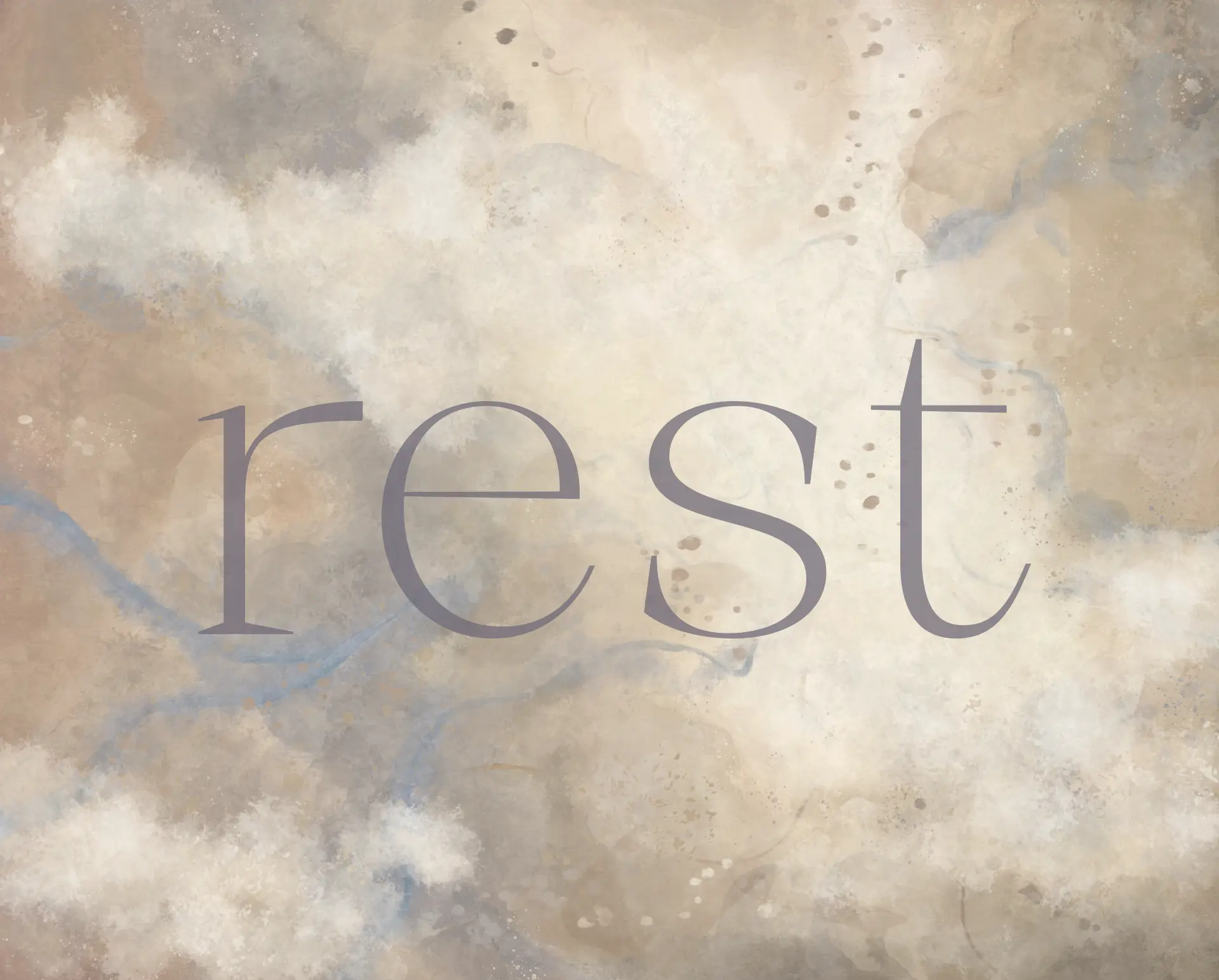I’ve always thought of Mark as the “hurry up” Gospel, because everything seems to happen “immediately.” Perhaps that’s why Mark 6 caught my attention recently, where Jesus invited the disciples to rest after they return from their missionary journey. Rest seems so incongruous in this fast-paced book, and surprisingly, it’s the only Gospel in which this invitation appears. As someone living a “hurry up” life, longing for rest, I was intrigued, especially in light of how it played out.
The disciples had come back from their travels excited to talk about everything that had happened. The crowds were pressing in on them so severely, however, that not only was it challenging to talk, but they couldn’t get a moment to eat either. That’s when Jesus extended this remarkable invitation: “Come with me by yourselves to a quiet place and get some rest.” So they hopped in a boat and headed for a solitary place (otherwise known as the wilderness). Sounds pretty wonderful, doesn’t it? Getting some downtime with Jesus and your friends, eating and swapping stories? But that’s not what happened.
Instead, they arrive to discover that thousands of people from the surrounding area are waiting for them. Jesus, seeing the crowd as sheep without a shepherd, is moved with compassion and spends the day teaching them. Eventually, the disciples (who still haven’t eaten) appeal to him to disperse the crowds so the people can go find something to eat. But what does Jesus do? He tells them to feed the people. They balk at what it would cost, so Jesus has them find out what’s available—five loaves and two fish. He then gives thanks and has the disciples hand the food out until the entire crowd of 5,000 are satisfied, and each of the disciples has his own basketful of leftovers besides.
So much for a quiet day alone with Jesus. So much for telling Jesus all that God had done while they were away. So much for having a restful day. But wait, it gets worse!
Jesus sends the disciples off in the boat to Bethsaida, dismisses the crowd, and then goes up on a mountain to pray. The disciples, meanwhile, are straining at the oars to row into strong headwinds. Up on the mountain, Jesus is aware of their situation but he waits until the early hours of the morning to go to them. As he walks by them, they mistake him for a ghost and shriek in terror. He replies saying, “Take courage! It is I. Don’t be afraid.” At that point he climbs into the boat with them and the winds die down. The passage ends by stating that the disciples were completely amazed, because they had not understood about the loaves and their hearts were hardened.
So a day that had begun with such promise had not turned out as expected. I can easily imagine that the disciples could have been disappointed, frustrated, discouraged, confused, physically spent, and feeling like they had experienced anything but a day of rest. Whatever had become of that invitation? Had it just fallen by the wayside? Had circumstances thwarted Jesus’ intentions? Or, I wondered, was it possible something more was going on?
Consider the scene—a large number of Israelites out in the wilderness needing food, with no obvious or natural way for them to get it, so their “shepherd” has them sit on the green grass in groups of fifties and hundreds and then miraculously provides them with a meal of bread and fish. Does that remind you of anything? Perhaps an even larger group of Israelites out in the wilderness with no obvious or natural way to be fed who experienced the miraculous provision of manna for forty years? And can you hear the echoes of Psalm 23? "The Lord is my shepherd, I shall not want... He makes me lie down in green pastures... He prepares a table before me..."
Jesus, the compassionate shepherd, first fed the crowd spiritually, and then, by using the disciples to pass out an ever-increasing supply of bread and fish, revealed himself as the bread of life. And perhaps even more significantly for the disciples, he provided each with a basketful of tangible evidence of who he was to carry with them.
Jesus continued to reveal himself through the events on the lake. Who is able to walk on the sea? Only one who is lord over the sea. And because the sea represents chaos in Scripture, Jesus is demonstrating his lordship over chaos. The passage says that Jesus “intended to pass them by.” Do you notice the similarity with other passages where God passes by to make himself known, as when he hid Moses in the cleft of the rock and his glory passed by? And then, if it hadn’t become apparent already, Jesus uses God’s own name to announce himself to the disciples, declaring, “It is I!"
Did it turn out to be a quiet, peaceful day for the disciples? Hardly. But does that mean rest was lost to them that day? Hardly. Their rest was right in front of them, if only they had the eyes to see him. So how does that help me when the times I’ve set aside to rest become overcome with the unexpected? I recall how the “hurry up” Gospel managed to describe a day full of activity, while also revealing the one who is rest himself—one whose heart is compassionate toward his sheep, who nourishes us spiritually while also providing our daily bread. One who goes up on the mountain to intercede for us. One who is Lord over chaos, who not only comes to us when we’re straining at the oars, rowing into the headwinds of life, but who also gets into the boat with us, saying, “Take heart! It is I! Don’t be afraid.”
•
Finding rest in the midst of our busy lives can be difficult, and even when we are praying and looking for it, it does not always come to us in the form we anticipate. If you missed the live conference, purchase our full 2024 CCEF Rest Conference audio to learn more about what Scripture has to say about rest and how we are to embrace its blessings.




